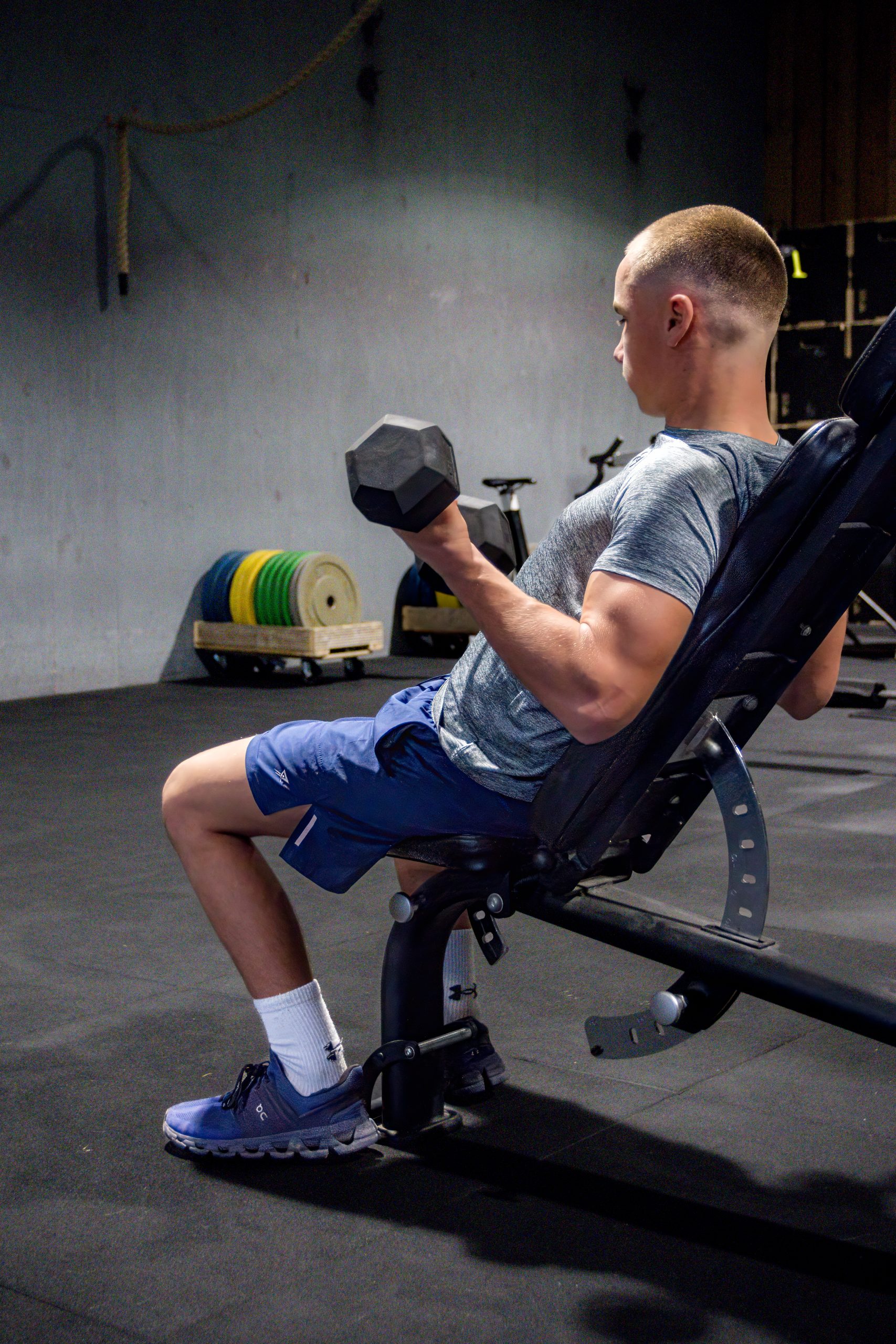Busting Myths of Strength Training for Children and Building Confidence
As parents, we strive to provide the best possible start for our children. This includes nurturing their physical and mental well-being. We want our children to be active and whilst many parents encourage sports and outdoor play, the idea of strength training for children might raise concerns. Is it safe? Will it stunt their growth? Will it make them muscle bound? The truth is, when done correctly, strength training can offer a wealth of benefits for children of all ages. As a leading youth fitness coach in Ascot, let’s look at look at some of these common concerns.
Busting the Myths
Let’s tackle some common misconceptions:
-
Myth: Strength training will stunt my child’s growth.
This is a complete myth. In fact, studies have shown the opposite. Weight-bearing exercises, like those involved in strength training, stimulate bone growth and increase bone density. This is crucial for children and adolescents, laying the foundation for strong bones throughout their lives. A study published in the Journal of Bone and Mineral Research found that young girls who participated in a supervised strength training program for 12 months showed significant increases in bone mineral density compared to a control group.
-
Myth: Strength training is for athletes and those that want to be good at sports.
Strength training benefits everyone, from aspiring Olympians to children who simply enjoy being active. It improves overall fitness, coordination, and balance – essential skills for everyday life. A child who struggles with balance might find that incorporating exercises like squats and lunges into their routine helps improve their stability and reduces their risk of falls.
-
Myth: Children should focus on cardio and not lifting weights.
A balanced approach is key. Cardio is excellent for cardiovascular health, but strength training complements it perfectly. It helps build muscle mass, which increases metabolism and can even aid in weight management. A child who enjoys playing soccer will benefit greatly from incorporating strength training exercises. Stronger leg muscles will improve their speed, agility, and ability to withstand the demands of the sport, potentially reducing the risk of injuries. We want our children to run and jump and play freely – being strong helps their bodies absorb the forces involved in their play.
Getting Started Safely
If you’re considering strength training for your child, here are some essential points:
- Choose a Qualified Instructor: A qualified personal trainer or experienced youth fitness coach in Ascot coach can create a safe and effective program tailored to your child’s age, abilities, and interests.
- Start with Bodyweight Exercises: Begin with foundational exercises like push-ups, squats, lunges, and planks. These use the child’s own body weight for resistance and are excellent for developing core strength and coordination. Once children are moving wwith good form then explore adding external resistance.
- Focus on Proper Form: Emphasise proper technique from the start. This is crucial for preventing injuries and ensuring the exercises are effective. Improper form is one of the key causes of injury. Strength training for children is very safe if exercise form is made the priority.
- Make it Fun! Turn strength training into a game or incorporate it into activities your child enjoys. This will keep them motivated and engaged. Exploring strength training together in this way is a great shared experience. Let their imagination lead it – don’t become too regimented – they have the rest of their adult life for that!
Resources
For further information and guidance:
- The American Academy of Pediatrics (AAP): https://publications.aap.org/pediatrics/article/121/4/835/70927/Strength-Training-by-Children-and-Adolescents
- The UK’s Chief Medical Officers’ Physical Activity Guidelines: https://www.gov.uk/government/collections/physical-activity-guidelines
- The National Strength and Conditioning Association (NSCA): https://nscs.org/
Conclusion
Strength training can be a valuable addition to your child’s fitness journey. Therefore, when approached thoughtfully and with a focus on safety and fun, it can offer a range of benefits, from improved bone health and muscle strength to increased confidence and self-esteem. Remember, the key is to make it an enjoyable experience that promotes a lifelong love of physical activity
